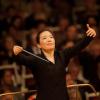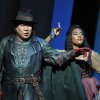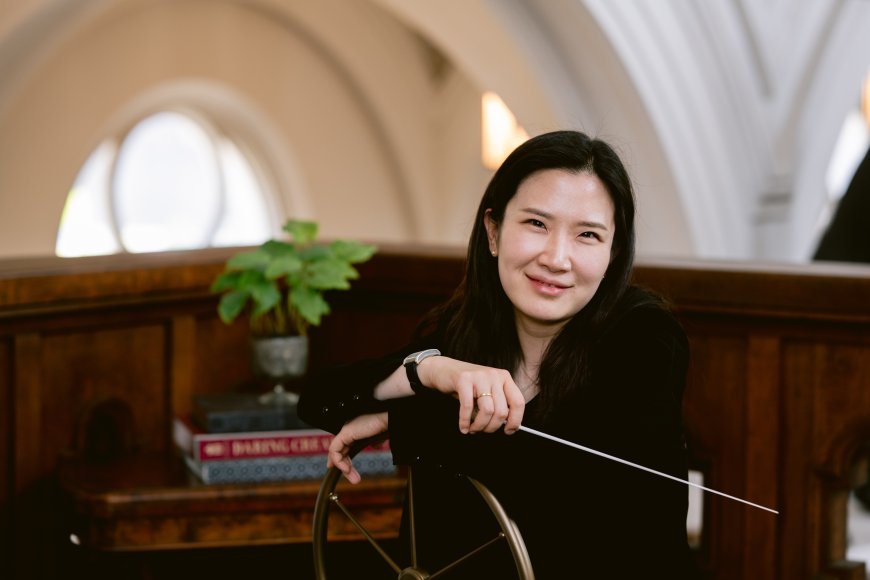
San Francisco Opera Music Director Eun Sun Kim is deep in her Wagner era and thriving.
After dazzling audiences with 2023’s sinuously propulsive Lohengin and an emotionally wrenching 2024 Tristan and Isolde, Kim now turns to Wagner’s final opera, Parsifal. The new production opens at War Memorial Opera House on Saturday, Oct. 25, marking the Opera’s first staging since 2000, when former music director Donald Runnicles conducted the work.
This will be Kim’s second Parsifal. She first conducted the work in 2024 at Houston Grand Opera where Kwangchul Youn sang Gurnemanz, a knight of the grail. The bass will reprise the role this Saturday.
Kim made her San Francisco Opera debut in 2019 with highly-praised performances of Dvořák’s Rusalka. Her appointment as the company’s music director was announced just months later, and she assumed the position in August 2021.
Since then, her career has skyrocketed. This season alone, she has debuts and return engagements scheduled at more than a dozen organizations in Europe and the United States along with her many duties with the Opera.
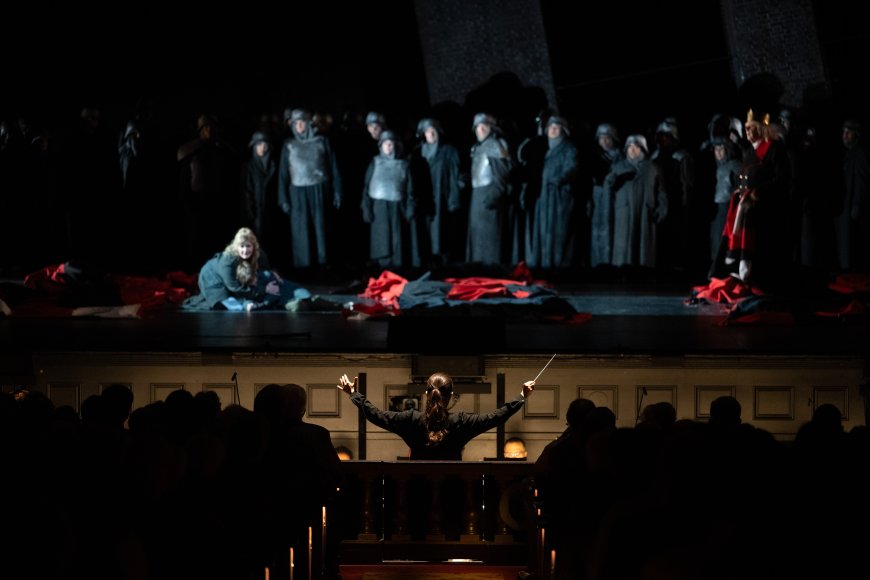
Last month, she kicked off her fifth season with the company with Verdi’s Rigoletto. After Parsifal, she plans to return for Strauss’ Elektra in the summer season. Looking further ahead, the conductor — who turns 45 this week — expects to helm Wagner’s epic The Ring of the Nibelungen, though dates and casting have not been announced.
Kim’s path to the podium began almost by accident. While studying composition as an undergraduate in her hometown of Seoul, South Korea, a teacher encouraged her to try conducting. She then pursued her doctorate in conducting at Germany’s State University of Music and Performing Arts Stuttgart, where she further immersed herself in the European operatic tradition.
In 2011, Kim assisted Kirill Petrenko (now chief conductor of the Berlin Philharmonic) for Tristan in Lyon, France. Kim’s first experience with Parsifal was that same year, when she assisted Bertrand de Billy at Teatro Regio in Italy — initiating her long history with Wagner.
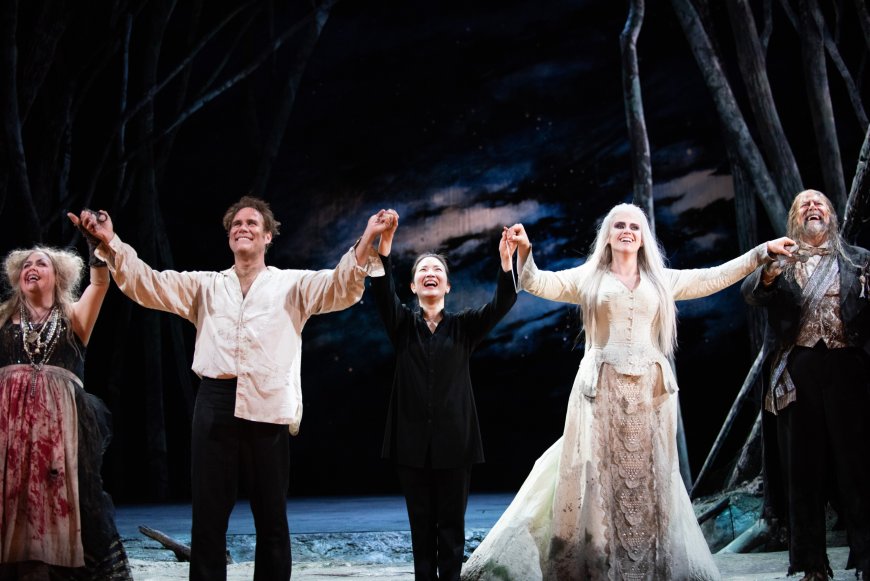
This conversation has been edited for length and clarity.
The first act of Parsifal is nearly two hours long. How do you pace the music and yourself?
Even after almost two hours, I don't feel like it’s that long. I think it’s because the score is so perfect. When you watch a film, even when it takes two hours, at the end you don't feel like you've spent that long. It feels like five minutes.
How did you prepare for Parsifal?
I assisted Parsifal when I was young, so I am very close to the score. 2011 was my beginning with the score; studying with (conductor Bertrand de Billy), the critical edition and the orchestral parts — I’ve lived with the score for a long time. (My process is) different when I'm doing a piece for the very first time.
Wagner wrote Parsifal to leverage the unique acoustics of the Bayreuth Festspielhaus, his own opera house, where the pit extends under the stage. Have you experienced Parsifal there?
I was in the audience for two performances for the great (Stefan) Herheim production of Parsifal, and (the house) sounds as you can imagine.
I think we can probably create a sound that's a little bit similar to that. We’re lower in the pit than (we were) in Tristan because of the size of the orchestra, so there is a little sound cave made by our pit. Adjusting that height changes the sound and acoustic completely.
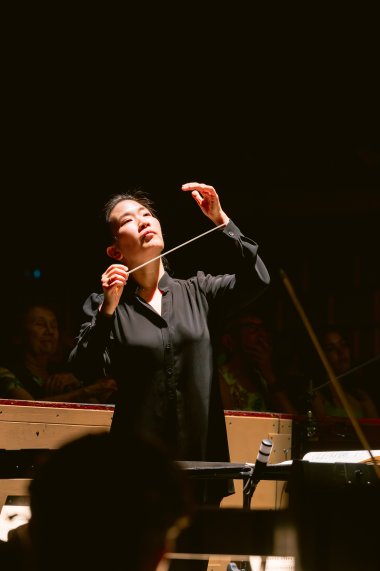
You were the subject of a documentary on the making of Lohengrin at San Francisco Opera. In the film, you mentioned that you were working with the orchestra on its sound via works by Verdi and Wagner. How has the sound evolved since you joined the company?
I can certainly say that the orchestra and I understand each other so much better and quicker in rehearsal. The things I needed to explain three years ago, we get there just with our eye contact. They are understanding me even before I say something. It's not about a sound that I want, but the sound I’m imagining for each score. I'm really happy about that process.
How does your Wagner conducting inform your Verdi conducting?
I've never thought about that. I don't know whether Wagner conducting influenced my Verdi conducting. But for me, those two composers have the storytelling and the pace in common. Both composers very often use empty bars.
It's not a fermata (an indication to hold a note or rest indefinitely) and it's not happening accidentally. It's all composed. So that silence needs to be a part of that music and storytelling. There is a reason why they put a complete empty bar.
How did you create dramatic tension during the empty bars in Rigoletto?
I explain a lot about the story. Of course, the musicians know the whole story of Rigoletto. But (I explain) why I think this empty bar is important, and why that tension. To feel the silence and hold their breath, and why. Then, they know exactly what drama is coming and how much that drama should come from the orchestra.
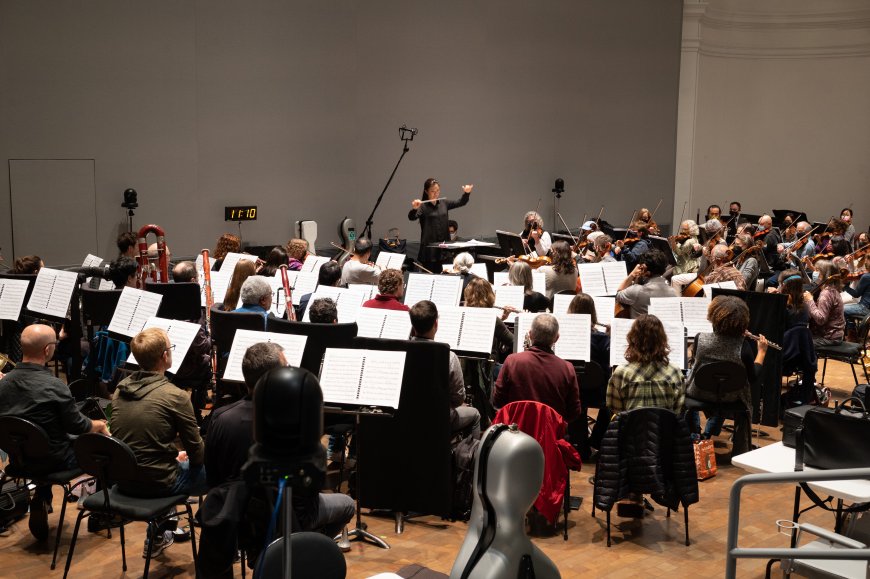
What are your responsibilities at San Francisco Opera outside of conducting? You and General Director Matthew Shilvock work together to choose the repertory, but how else are you involved?
We choose the guest conductors as well. I’m in their rehearsals, especially when the conductor is making their debut. I’m there to support them with the acoustic, how it sounds, the balance. Based on my experience as a guest conductor, I'm trying my best to help them feel welcome, but not put too much pressure on them.
How is it going with the Verdi-Wagner project?
When I joined this company, we were still playing eight operas (per season). Now the situation is different. When you play less operas, you have to be careful that (the season) doesn't have too much weight only two composers. We feel like the project can't go on forever and we need to touch other stuff as well.
Who are some composers you’d like to conduct?
Everyone!
We talk about (Hindemith’s) Mathis der Maler and (Pfitzner’s) Palestrina. I’ll (also) come back to modern pieces and living composers. There is no limit for me.
Are there any composers you would prefer not to conduct?
My answer is no. But I know that there are conductors who can conduct Baroque music better than I do. I love Baroque music, but I'm not a string player and it matters very much in the Baroque how you use the string instruments. It's not like I don't want to conduct (Baroque music), but I know that I can give those pieces to other conductors.
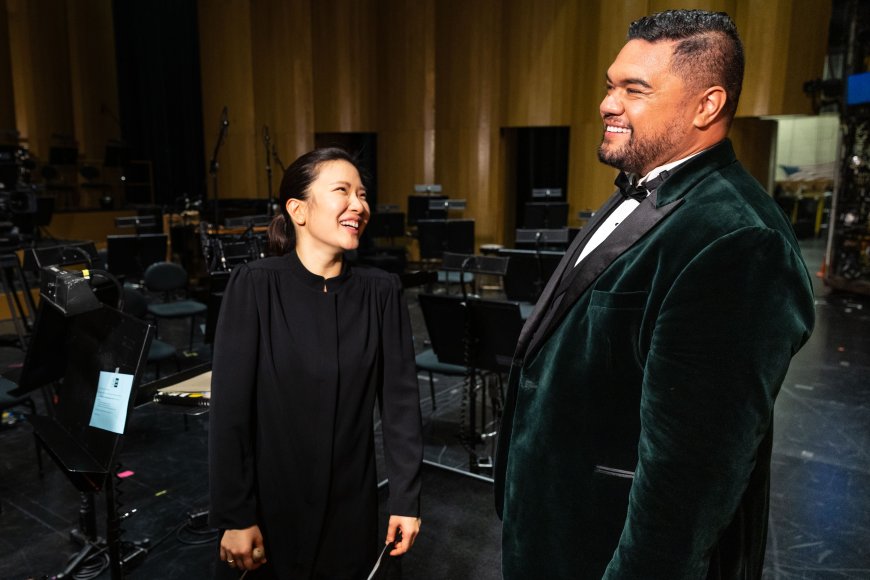
What are you taking away from the San Francisco Opera orchestra’s concerts, which have been very successful?
It's very important for an orchestra (to play concerts). An opera orchestra is great at listening to the stage, making the storytelling with (the singers) and breathing with them. But as an orchestra only, it's a different dynamic. Listening to your colleagues and then making our own storytelling is very, very important.
Are you going to do more free events, like the St. Joseph’s Art Society concert presented last May?
Yes. I can't reveal the venues, but definitely, it's on our agenda. We had so much fun.
Outreach is important. There were audience members who actually came to Rigoletto and Idomeneo because of St. Joseph’s. There were people who were really impressed by “Bohème Out of the Box” (the Opera’s portable “La Bohème,” which is performed outdoors in parks), and asked “Oh, how do I come to the opera house?”
Which of your upcoming guest engagements are you most excited for?
I'm going back to Madrid after 15 years (for Carmen), so I'm very excited about that. I was the house assistant conductor (at the Teatro Real) for two years, so I lived in Madrid for two years and that house was my home. I made my debut there and won the conducting competition there in 2008. I think everyone there is also very emotional, and I'm very emotional about that.
Lisa Hirsch is a freelance writer. This article has been provided in partnership with San Francisco Chronicle.


